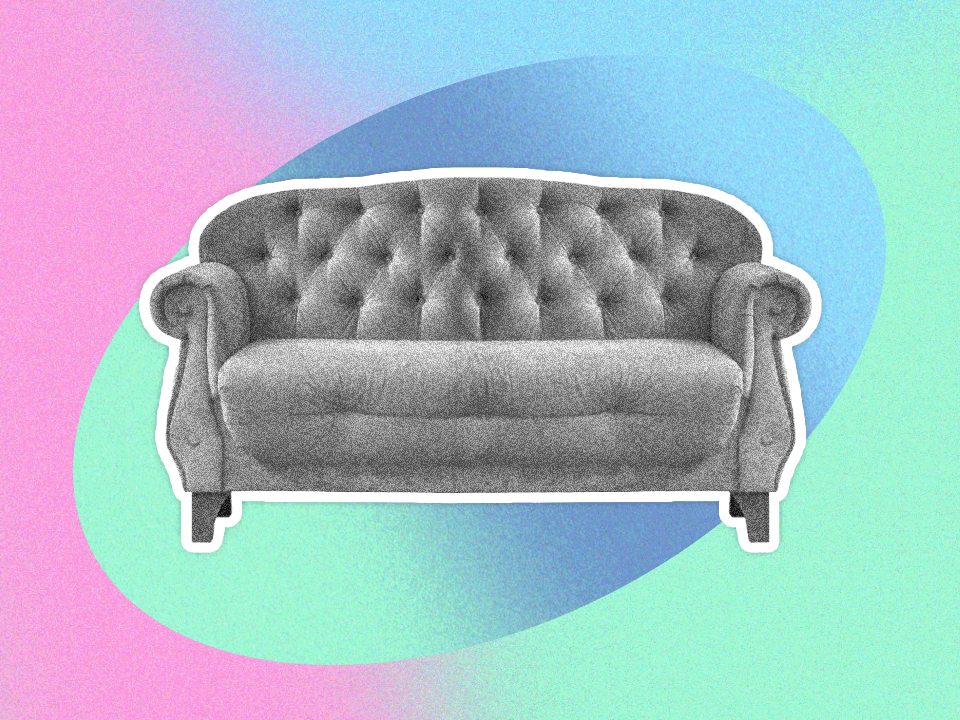12 Very Good Reasons to Try Therapy
Turns out, thinking about going to therapy is a reason to go to therapy.
Maybe you’ve heard, but consider this a friendly reminder that Everyone! Benefits! From! Therapy! You don’t need to have a diagnosable condition, a life that’s actively on fire, or even be outwardly struggling to make it through the day to get your therapy on. So if you’re out here asking, “Do I need therapy?” the answer is probably!
And, actually, if life is relatively chill for you, going to therapy could help you do things like find ways to get more joy out of life, set some new goals, straighten out little relationship issues that have been on your mind, or just vent about your boss. These are all totally valid reasons to go to therapy.
But let’s back up a bit: Psychotherapy, also called talk therapy, also also called therapy, helps you identify and change unhelpful thoughts, behaviors, and emotions, according to the National Institute of Mental Health. Maybe that’s a panic-inducing fear of speaking in meetings, or trying and failing to quit smoking, or sad spells that keep you from enjoying life. Basically, working with a licensed mental health professional via talk therapy can help you get to the root of those moods, thoughts, or urges getting in the way of you living the life you want to live, says licensed clinical psychologist Daniel Johnson, PhD.
Obviously, untangling the web that is your brain involves tough conversations and, yeah, maybe even major awkwardness as you’re opening up to a complete stranger (that stranger being a mental health pro). But here are double-digit reasons why you should definitely go for it.
1. You’ll learn how to build stronger relationships.
Maybe you’re having the same fight with your partner over and over or you’re not sure how to handle a not-so-great dynamic with your mom. You can go to individual therapy and talk about ways to best navigate conflict and foster intimacy, if that’s what you need, but you can also try couple’s and family therapy, where working alongside the people you’re struggling to get along with is the key focus, says licensed therapist Shadeen Francis, LMFT, CST.
For example, you might work together in couple’s therapy to figure out what behaviors trigger certain arguments and to really understand how each person is feeling mid-fight, says clinical psychologist Sally Chung, PsyD, who uses emotionally-focused therapy (a specific type of therapy that’s based on attachment theory) to help couples communicate better. You might realize that it helps the situation if you ask for space instead of shutting down, she says. Then, when you’re ready, you can talk it out and (gasp!) validate each other’s feelings.
2. You’ll figure out how to deal with tricky symptoms.
If you DO have a mental health condition (or suspect you do), a therapist can officially diagnose you (if you’re not already) and use psychotherapy to address the symptoms of your disorder, like anxiety spirals, compulsions, intrusive thoughts, or whatever is getting in the way of your life.
For instance, therapists may use cognitive behavioral therapy (CBT), a therapy that focuses on changing thoughts and behaviors, to help people with depression, anxiety disorders, PTSD, and more. They might also use dialectical behavior therapy (DBT), which involves individual and group sessions to work on skills for mindfulness and emotion regulation.
Of course, many therapists ask their clients what they’d like to get out of therapy before deciding what method is best, rather than basing it solely off of a diagnosis—especially if you don’t have a specific condition. So if you want to work on negative thought patterns (“I suck at my job! I have no friends!”), the therapist might use CBT. Or if you want to work on making peace with certain situations or feelings, they might work with you using acceptance and commitment therapy (ACT), says Dr. Chung.
3. You can break habits that you’ve been trying to quit for-ev-er.
Sure, this could be something like smoking, but it could also be lashing out at people you care about, says Dr. Chung. A therapist will go all P.I. and find out the factors that drive those behaviors and, “after understanding the why behind them, can help you figure out how to resolve that need or meet that why in a way that is healthier or more positive,” she explains. FYI, if you’re struggling with addiction, there are treatment centers and individual therapists who specialize in that.
4. You’ll learn how to be nicer to yourself.
If your biggest hater is yourself, therapy can help you lean into self-compassion. Can’t stop talking shit to yourself at work or while getting ready in the morning? A therapist can teach you how to speak with less judgment and let go of negative thoughts when you’re having a bad day. That might include getting into the habit of treating yourself like someone you love (your cat? your niece?), says Dr. Johnson. So, “Why can’t you just get over this?!” could turn into “This sucks, but you can work through it.”
Your therapist could also help you come up with phrases to repeat on the regular (“I am strong,” “I can do hard things”) so that you make a habit of looking at yourself in a kinder way, Dr. Johnson explains. JYSK, a mental health pro can guide you in the right direction, but you’ve got to actually try to be gentle with yourself when it matters.
5. You can figure out what you actually want to do with your life.
Who doesn’t love them some direction? Therapy enables you to identify what’s truly important to you and understand your values, says Dr. Chung. “Humans need a why to do things,” so having this direction in life helps you live more meaningfully and intentionally, she says. If you feel stuck at work, your therapist might ask you to think about what you’re looking for in a job and act accordingly (maybe you realize you want to quit or that you’re OK staying, but you want to look for a volunteer gig that’ll meet your passions instead). Maybe you realize in therapy that you want a partner who splits the housework 50/50, inspiring you to break things off.
Some therapists like using worksheets or making lists about what you care about to help you find purpose in therapy sessions or on your own, says Dr. Johnson. But, oftentimes, therapists will ask what makes you sad, angry, or scared to help uncover what you care about, he adds.
6. You’ll learn what getting ~grounded~ means—and how to do it.
Therapy can teach you mindfulness techniques like this one. Learning how to be more present by focusing on what’s happening around you or within you right now (aka grounding) can help you feel less out of control during a panic attack or just an overwhelming day, says Dr. Johnson. Plus, a therapist can teach you mindfulness techniques from approaches like ACT and DBT to help you stay chill. Figuring out how to stay present in your body also enables you to connect with and do more of what feels good, like spending time with family or drinking a really good beer, says Dr. Johnson.
7. You’ll face your feels instead of avoiding them.
Pushing down your feelings in certain situations can be fine sometimes (fiery rage might be better suited for your house than your office). But if you keep shoving your emotions away, they’ll boil over eventually, says Dr. Johnson.
By working with a therapist to address emotions you’d otherwise ignore, you’ll be better equipped to learn and grow from difficult experiences and to communicate what you need to others, Dr. Johnson adds. For example, if you refuse to let yourself come to terms with how you treated your ex, the guilt associated with that may affect your future relationships. If you’ve lost a job you really loved and haven’t taken the time to grieve, you might not be able to find value in different opportunities.
8. You can unpack heavy stuff from your childhood.
Your past experiences, especially the ones from when you were growing up, could impact the things you reach for for comfort, how you deal with conflict, and more, says Dr. Chung. You might learn that how you show love—or don’t show love—goes back to the way your family treated you, for example. So, digging into all that stuff bb you went through can help you figure out how to change patterns that aren’t working anymore.
9. You can overcome your fears.
If you’re super scared of something specific, especially to the point of a full-blown phobia, you can face it through exposure therapy. With this process, you’ll do the things that your anxiety or trauma wants you to avoid, says licensed psychologist Renee DeBoard-Lucas, PhD. Terrified of dogs? Your therapist might help you overcome that by working from talking about dogs, to looking at pictures of dogs, to maybe even meeting one. If traumatic memories are messing with you, a therapist might use prolonged exposure therapy to help you confront situations that bring on those memories, she adds.
10. You can learn to ask for help when you need it.
Therapy gives you room to identify areas where you find it particularly hard to get an assist and why that is. Maybe you used to be scolded for seeking help, you were made fun of for needing help, or you’ve always been praised for going above and beyond for everyone other than yourself. Any of that can lead to feeling meh about actually advocating for yourself and trusting others to be there for you, says Dr. Chung.
But learning to ask for what you need via psychotherapy can foster positive relationships where you seek help and give it, she says. Your therapist might suggest starting small by asking the barista to fix your coffee order and working your way up from there.
11. You can set important boundaries.
Maybe you take on too many work projects or you aren’t sure how to stop saying yes to weekend plans even when you’re burnt out. Therapy can teach you how to identify your limits and where to draw the line. It can also teach you to how to set boundaries differently with your boss or coworkers than you would a significant other or friend, says Dr. Johnson (aka, maybe don’t tell your boss you can’t take on any more assignments for the rest of the year, but do tell a friend that they should count you out of parties for a while). You can even role play with your therapist to practice how you would handle convos about boundaries with other people, he says.
12. You can do all that without leaving your house (if you don’t want to).
While virtual therapy doesn’t work for everyone—some might find it harder to connect when there’s a computer screen or phone in between them and their therapist—it’s still proven to be an effective option. In fact, one meta-analysis from pre-COVID times suggested that online CBT improved people’s depressive symptoms slightly more than in-person CBT. And a systematic review of pre-pandemic studies found that internet-based CBT was just as effective as face-to-face CBT in treating anxiety disorders.
Thanks to a temporary hold on some regulations, many mental health pros started offering virtual sessions at the start of the pandemic, making therapy more accessible at a time when the world was/is, well, *gestures everywhere*. Therapists usually note online if they offer teletherapy, but you could always ask if you aren’t sure and are interested in giving it a try.
Wondermind does not provide medical advice, diagnosis, or treatment. Any information published on this website or by this brand is not intended as a replacement for medical advice. Always consult a qualified health or mental health professional with any questions or concerns about your mental health.




